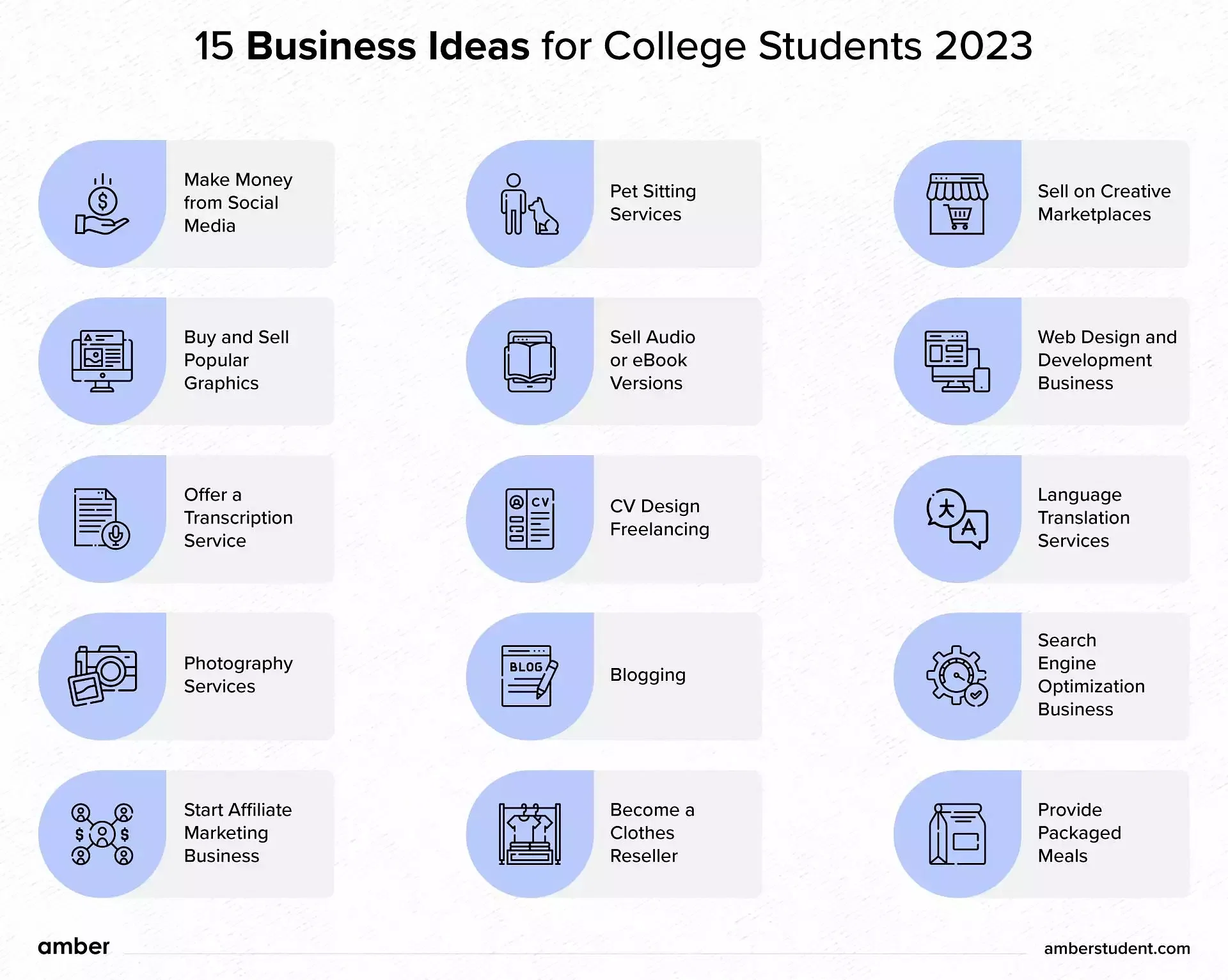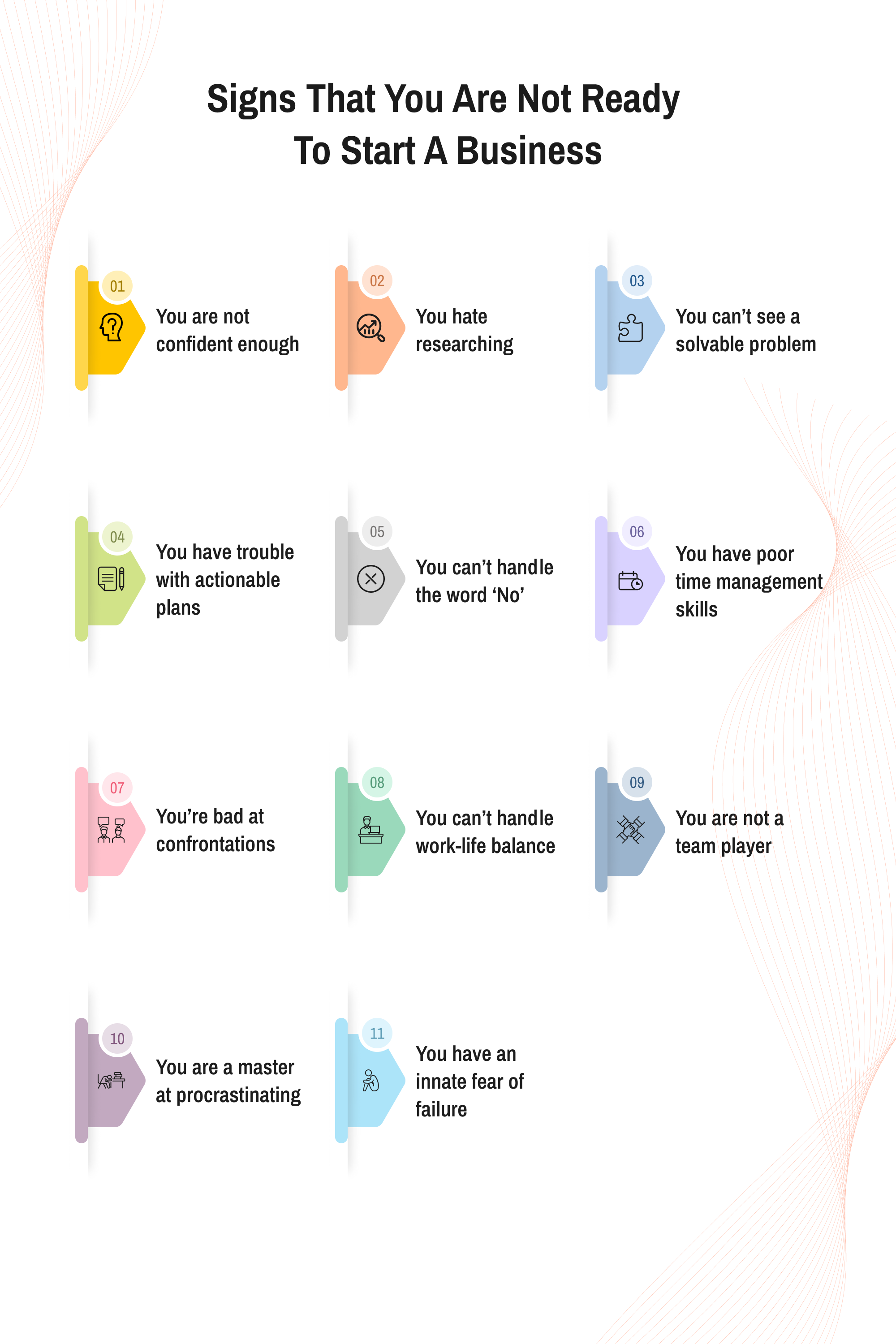Starting a business in college is an increasingly popular path for ambitious students seeking to balance academics with entrepreneurial aspirations. With access to resources like mentorship, networking opportunities, and flexible schedules, college provides a unique environment to test innovative ideas and build a foundation for future success. Many successful companies, such as Facebook and Microsoft, were born in dorm rooms, proving that age and experience are no barriers to entrepreneurship. However, launching a business while managing coursework and extracurriculars requires careful planning, time management, and resilience. This article explores the challenges, opportunities, and strategies for turning a college startup into a thriving venture.

- Starting A Business In College: A Guide to Balancing Education and Entrepreneurship
- Can you start a business while in college?
- What is the best business to start in college?
- Should I quit college to start a business?
- What Are the Risks of Quitting College to Start a Business?
- What Are the Potential Benefits of Starting a Business Instead of Continuing College?
- How Can I Assess If I'm Ready to Start a Business?
- What Are Some Alternatives to Quitting College to Start a Business?
- How Can I Minimize the Risks of Quitting College to Start a Business?
- How to start a business right out of college?
- Frequently Asked Questions (FAQs)
Starting A Business In College: A Guide to Balancing Education and Entrepreneurship
Starting a business while in college can be an exciting and rewarding endeavor. It offers students the opportunity to gain real-world experience, develop valuable skills, and potentially generate income. However, balancing academics and entrepreneurship requires careful planning, time management, and a clear understanding of the challenges involved. Below, we explore key aspects of starting a business in college, along with actionable tips to help you succeed.
1. Identifying a Viable Business Idea
The first step in starting a business is identifying a viable idea. Consider your passions, skills, and the needs of your target audience. Many successful college businesses stem from solving common problems faced by students, such as affordable meal delivery, tutoring services, or eco-friendly products. Conduct market research to validate your idea and ensure there is demand for your product or service.
See Also How To Start An Event Venue Business
How To Start An Event Venue Business2. Managing Time Effectively
Balancing academics and entrepreneurship can be challenging. Create a schedule that allocates specific time blocks for studying, attending classes, and working on your business. Use productivity tools like calendars, task managers, or apps to stay organized. Prioritize tasks and avoid procrastination to ensure both your education and business thrive.
3. Leveraging Campus Resources
Colleges often provide resources to support student entrepreneurs. Look for business incubators, mentorship programs, or entrepreneurship clubs on campus. These resources can offer guidance, networking opportunities, and even funding. Additionally, professors and peers can provide valuable feedback and insights to help refine your business model.
4. Building a Strong Online Presence
In today’s digital age, having a strong online presence is crucial for any business. Create a professional website and utilize social media platforms to promote your brand. Engage with your audience by sharing valuable content, responding to inquiries, and showcasing customer testimonials. A well-designed online presence can significantly boost your business’s visibility and credibility.
See Also Can a 16 Year Old Get Backed by a Venture Capitalist?
Can a 16 Year Old Get Backed by a Venture Capitalist?5. Securing Funding and Managing Finances
Starting a business often requires some initial investment. Explore funding options such as personal savings, grants, or crowdfunding platforms. Keep track of your expenses and revenue using budgeting tools or accounting software. Proper financial management is essential to ensure your business remains sustainable and profitable.
| Key Aspect | Tips |
|---|---|
| Business Idea | Focus on solving a problem or meeting a need within your target audience. |
| Time Management | Use productivity tools and prioritize tasks to balance academics and business. |
| Campus Resources | Utilize incubators, mentorship programs, and networking opportunities. |
| Online Presence | Create a professional website and engage with your audience on social media. |
| Funding and Finances | Explore funding options and manage your finances carefully to ensure sustainability. |
Can you start a business while in college?

Is It Possible to Start a Business While in College?
Yes, it is entirely possible to start a business while in college. Many students have successfully launched businesses while balancing their academic responsibilities. College provides a unique environment with access to resources like mentors, networking opportunities, and potential collaborators. Additionally, the flexibility of a student schedule can allow for time management that accommodates both studies and entrepreneurial pursuits. However, it requires careful planning, discipline, and prioritization to ensure neither academics nor the business suffers.
See Also What is the Worst Part of Being a Vc?
What is the Worst Part of Being a Vc?- Time Management: Balancing coursework and business tasks is crucial. Use tools like calendars and to-do lists to stay organized.
- Leverage Campus Resources: Many colleges offer incubators, workshops, and funding opportunities for student entrepreneurs.
- Start Small: Begin with a manageable idea that doesn’t require excessive capital or time investment.
What Are the Benefits of Starting a Business in College?
Starting a business in college offers numerous advantages. It allows students to gain real-world experience, build a professional network, and potentially earn extra income. Additionally, college campuses are often hubs of innovation and creativity, providing a supportive environment for entrepreneurial endeavors. Students can also test their ideas with a diverse audience, including peers and professors, who can offer valuable feedback.
- Skill Development: Running a business helps develop skills like leadership, problem-solving, and communication.
- Networking Opportunities: College events and clubs can connect you with like-minded individuals and potential partners.
- Low-Risk Environment: College is a time to experiment, and failure can be a valuable learning experience.
What Challenges Might You Face When Starting a Business in College?
While starting a business in college has its perks, it also comes with challenges. Time constraints, financial limitations, and lack of experience are common hurdles. Balancing academic deadlines with business responsibilities can be stressful, and securing funding may be difficult without a steady income. Additionally, students may lack the industry knowledge or connections needed to scale their business effectively.
- Time Constraints: Juggling classes, assignments, and business tasks can be overwhelming.
- Financial Limitations: Limited funds may restrict marketing, product development, or scaling efforts.
- Lack of Experience: Inexperience in running a business can lead to mistakes and inefficiencies.
What Types of Businesses Are Ideal for College Students?
Certain types of businesses are better suited for college students due to their flexibility, low startup costs, and alignment with student lifestyles. Examples include freelance services, tutoring, e-commerce stores, and content creation. These businesses often require minimal upfront investment and can be managed alongside academic commitments. Additionally, they leverage skills that students already possess or are developing during their studies.
See Also How Do Junior Lawyers Make the Transition to Venture Capital?
How Do Junior Lawyers Make the Transition to Venture Capital?- Freelance Services: Offer skills like writing, graphic design, or web development on platforms like Fiverr or Upwork.
- Tutoring: Help peers or younger students in subjects you excel at.
- E-commerce: Sell products online through platforms like Etsy or Shopify.
How Can You Balance Academics and Entrepreneurship?
Balancing academics and entrepreneurship requires careful planning and discipline. Prioritize tasks, set realistic goals, and avoid overcommitting yourself. Utilize breaks between classes or weekends to focus on your business. Communicate with professors or advisors if you need flexibility with deadlines. Remember that your education should remain a priority, so ensure your business activities do not negatively impact your academic performance.
- Create a Schedule: Allocate specific times for studying and working on your business.
- Set Priorities: Focus on tasks that have the most significant impact on both your studies and business.
- Seek Support: Collaborate with classmates or hire help to manage workload effectively.
What is the best business to start in college?

Freelancing Services
Starting a freelancing business in college is an excellent way to leverage your skills while maintaining flexibility. Many students offer services like graphic design, content writing, or web development. Here’s why it’s a great option:
- Low startup costs: All you need is a laptop and an internet connection.
- Flexible hours: You can work around your class schedule.
- Skill development: Gain real-world experience in your field of interest.
Tutoring or Academic Assistance
If you excel in a particular subject, offering tutoring services can be a profitable and rewarding business. Many students struggle with coursework and are willing to pay for help. Consider the following:
- High demand: Subjects like math, science, and languages are always in need.
- Minimal investment: You only need your knowledge and teaching materials.
- Networking opportunities: Build connections with peers and professors.
E-commerce or Dropshipping
Starting an e-commerce store or dropshipping business is a popular choice for college entrepreneurs. You can sell products online without holding inventory. Here’s why it works:
- Scalability: You can start small and expand as you grow.
- Global reach: Sell to customers worldwide using platforms like Shopify or Etsy.
- Low overhead: No need for a physical store or large upfront costs.
If you’re skilled in social media, offering management services to small businesses or influencers can be lucrative. Many businesses lack the time or expertise to manage their online presence. Key points include:
- Growing demand: Businesses increasingly rely on social media for marketing.
- Creative freedom: Design campaigns and content that reflect your style.
- Remote work: Manage accounts from anywhere, even your dorm room.
Event Planning or Photography
College campuses are full of events, making event planning or photography a viable business. Whether it’s parties, graduations, or club events, there’s always a need. Consider the following:
- High earning potential: Charge per event or hour for photography services.
- Creative outlet: Showcase your organizational or artistic skills.
- Word-of-mouth marketing: Satisfied clients can lead to more opportunities.
Should I quit college to start a business?
What Are the Risks of Quitting College to Start a Business?
Quitting college to start a business involves several risks that should be carefully considered:
- Financial instability: Without a degree, your earning potential may be limited if the business fails.
- Lack of experience: College provides valuable knowledge and skills that can be crucial for running a business.
- Limited network: College is a great place to build connections that can help in your entrepreneurial journey.
What Are the Potential Benefits of Starting a Business Instead of Continuing College?
Starting a business instead of continuing college can offer several advantages:
- Real-world experience: Running a business provides hands-on experience that can be more valuable than theoretical knowledge.
- Potential for high rewards: If successful, a business can generate significant income and personal satisfaction.
- Flexibility: Being your own boss allows for greater control over your time and decisions.
How Can I Assess If I'm Ready to Start a Business?
Assessing your readiness to start a business involves evaluating several factors:
- Financial resources: Do you have enough savings or funding to sustain yourself during the initial stages?
- Market research: Have you identified a viable market for your product or service?
- Personal commitment: Are you prepared to dedicate the necessary time and effort to make the business succeed?
What Are Some Alternatives to Quitting College to Start a Business?
There are alternatives to quitting college that can allow you to pursue entrepreneurship:
- Part-time business: Start a business while still attending college to balance both.
- Internships: Gain experience in your desired industry while continuing your education.
- Online courses: Take online courses in entrepreneurship to build your skills without leaving college.
How Can I Minimize the Risks of Quitting College to Start a Business?
Minimizing the risks involves strategic planning and preparation:
- Create a business plan: A detailed plan can help you anticipate challenges and set clear goals.
- Build a support network: Surround yourself with mentors, advisors, and peers who can offer guidance.
- Start small: Begin with a smaller-scale version of your business to test the waters before fully committing.
How to start a business right out of college?

1. Identify a Viable Business Idea
Starting a business right out of college begins with identifying a viable business idea that aligns with your skills, interests, and market demand. Consider the following steps:
- Assess your strengths: Reflect on your academic background, hobbies, and experiences to identify areas where you excel.
- Research market trends: Look for gaps in the market or emerging industries that present opportunities.
- Validate your idea: Conduct surveys or interviews with potential customers to gauge interest and refine your concept.
2. Create a Solid Business Plan
A business plan is essential for outlining your goals, strategies, and financial projections. Here’s how to create one:
- Define your mission and vision: Clearly articulate the purpose and long-term goals of your business.
- Outline your target market: Identify your ideal customers and their needs.
- Develop a financial plan: Estimate startup costs, revenue streams, and break-even points.
3. Secure Funding for Your Business
Funding is often a major hurdle for new entrepreneurs. Explore these options to secure the necessary capital:
- Personal savings: Use your own funds to minimize debt and maintain control over your business.
- Seek investors: Pitch your idea to angel investors or venture capitalists who align with your vision.
- Apply for grants or loans: Research government programs or small business loans designed for young entrepreneurs.
4. Build a Strong Network
Networking is crucial for gaining support, mentorship, and opportunities. Follow these steps to build a strong network:
- Leverage college connections: Reach out to professors, alumni, and classmates who can offer advice or partnerships.
- Attend industry events: Participate in conferences, workshops, and meetups to connect with like-minded professionals.
- Join online communities: Engage in forums or social media groups related to your industry.
5. Focus on Marketing and Branding
Effective marketing and branding are key to attracting customers and building credibility. Consider these strategies:
- Develop a unique brand identity: Create a memorable logo, tagline, and visual style that reflects your business values.
- Utilize digital marketing: Leverage social media, email campaigns, and SEO to reach your target audience.
- Offer promotions or discounts: Attract early customers with special deals or incentives.
Frequently Asked Questions (FAQs)
Is it possible to start a business while still in college?
Yes, it is absolutely possible to start a business while in college. Many successful entrepreneurs began their ventures during their college years. Time management and prioritization are key factors in balancing academics and business. Colleges often provide resources such as incubators, mentorship programs, and networking opportunities that can help students launch their businesses. Additionally, the flexibility of a college schedule can allow students to dedicate time to their entrepreneurial pursuits.
What are the benefits of starting a business in college?
Starting a business in college offers numerous benefits. First, it allows students to gain real-world experience while still in school, which can be invaluable for future career opportunities. Second, colleges often provide access to free or low-cost resources, such as office space, legal advice, and funding opportunities. Third, students can leverage their peer network for collaboration, feedback, and early customers. Finally, starting a business in college can help students develop critical skills like problem-solving, leadership, and financial management.
How can I fund my business while in college?
Funding a business in college can be challenging, but there are several options available. Many students start with personal savings or contributions from family and friends. Additionally, colleges often have grant programs or competitions that offer funding to student entrepreneurs. Crowdfunding platforms like Kickstarter or Indiegogo can also be effective for raising capital. Another option is to seek angel investors or venture capitalists who are interested in supporting young entrepreneurs. Lastly, part-time jobs or freelance work can provide a steady income to reinvest into the business.
What challenges might I face when starting a business in college?
Starting a business in college comes with its own set of challenges. One of the biggest hurdles is time management, as balancing coursework and business responsibilities can be demanding. Another challenge is limited financial resources, which may restrict the scale of the business initially. Additionally, students may face lack of experience in areas like marketing, operations, or legal compliance. However, these challenges can be overcome by seeking guidance from mentors, utilizing college resources, and continuously learning and adapting. Persistence and a strong support network are crucial for navigating these obstacles.
Leave a Reply



Our Recommended Articles